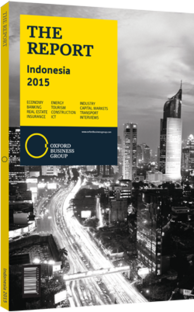Eddy K Logam, Chairman, Indonesia Ship Building and Offshore Association (IPERINDO): Interview

Interview: Eddy K Logam
What can the government do to boost the domestic shipbuilding industry?
EDDY K LOGAM: President Jokowi has stated that Indonesia must become a strong maritime nation. In order for this to happen, it is critical to improve coordination and collaboration among ministries. Realising the president’s vision will require building better ports and more efficient logistics systems, but more importantly, it requires a strong, healthy and competent local shipbuilding industry. Without domestic ship production capability Indonesia will continue to be just an importer of vessels and exhaust its foreign exchange reserve.
The first step in stimulating the local shipbuilding industry is to remove all taxes and duties on the import of ship parts and components. Today, there are no taxes and duties on importing finished vessels. However, if we are to produce vessels locally, we will have to pay a 10% value-added tax (VAT) and 5-12% duty on imported components. This is damaging for local industry, and until these are removed we will not see significant growth in the sector. We need to equalise the incentives that the government has provided for imported vessels, as well as implement the cabotage principle that was launched by the government in 2005. Some argue that removing taxes and duties will decrease state revenues; however, the decrease in VAT and duty income will be offset by revenue from corporate income taxes from related industries. This growing industry would also create more jobs.
Last but not least, the sector will need a clear roadmap from the government in order for private players to actively participate in developing a healthy shipbuilding industry. Shipbuilders must know how many vessels are needed, of what type and when. More clarity in this respect will help us reach economies of scale.
To what extent is the private sector ready to enter the field of shipbuilding?
EDDY: Over the past 20 years, Indonesia has fallen behind other countries in the region, mainly because production volume is non-existent. However, shipbuilding is a process that heavily involves welding, for which Indonesia has a strong workforce. What we now need is to kick-start the private sector’s involvement through more strategic partnerships with foreign companies that may technically assist in developing our domestic firms to improve their productivity. There is no need to reinvent the wheel. We just need to tap their knowledge and transfer the technology. Government support is also needed in this area to encourage banks to extend better financing options to the shipbuilding sector. This will provide a strong push for local companies to expand and grow their business in the area, not only as shipbuilders, but also as parts and components suppliers.
What investment opportunities might the local shipbuilding industry bring to foreign investors?
EDDY: In every nation, foreign participation is always positive. It creates healthy competition in the sector, as long as it is done on an equal playing field through positive collaboration, synergies and partnerships. It is a good way to develop a sector more quickly. Our law does not restrict foreign companies from investing in Indonesia’s shipbuilding industry, but we need to find a balance between foreign and local interest. Foreign companies have the technology, and we have the local knowledge, and so creating healthy and productive partnerships should not be hard.
Judging by today’s numbers, Indonesia might not seem like the best investment destination for international shipyards. However, investors need to look at the bigger picture. Indonesia is the world’s largest archipelago, has more than 17,000 islands and 250m people, and is expected to be among the top 10 economies by 2020. Moreover, we have a clear vision from our newly elected president. Together all of these factors mean that Indonesia will need to maintain and produce vessels locally. Indonesia already needs over 1000 vessels annually. There are many opportunities for foreign participants, and Indonesia will greatly reward early movers.
You have reached the limit of premium articles you can view for free.
Choose from the options below to purchase print or digital editions of our Reports. You can also purchase a website subscription giving you unlimited access to all of our Reports online for 12 months.
If you have already purchased this Report or have a website subscription, please login to continue.

